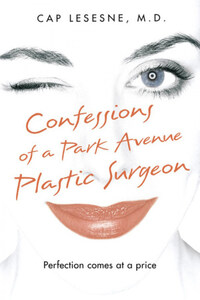Confessions of a Park Avenue Plastic Surgeon

All that you ever wanted to know – and never imagined – about what goes on behind-the-scenes at one of the world's most prestigious plastic surgeon's office.‘“I don't care if I die,” she said. “I waited my whole life to look good. I'm not going one more day looking the way I do … if I'm not happy, nothing else matters.’”What is it that drives women, and men, to the extreme measure of cosmetic surgery? People are popping out for botox in their lunch breaks, face-lifts before job reviews, breast implants before dates, and liposuction before just about any major event. From the living room to the boardroom to the catwalk, even the most successful and beautiful men and women are paying to go under the surgeon’s knife. And the obsession just keeps on growing!Cap Lesesne, one of the world's most sought-after and respected cosmetic surgeons, has seen them all. He's worked on queens, models, executives and housewives, turned a man into Elvis, been threatened by a Venezuelan oil magnate whose penis turned black and has been asked to implant breasts onto a transexual's back. He travels around the world, calls royalty and glitterati his friends, and can claim to have both saved and destroyed hundreds of relationships with his life-altering fingers.In this timely part-autobiography, part-expose, Cap reveals what life is like as the fairy-godfather with a scalpel, what it is that drives different people around the world to go under the surgeon’s knife, and the secret tell-tale signs of a post-op patient, as well as hundreds of real-life examples of the people he has worked on, from the urbane to the truly bizarre.Cap also reveals what it was that made him choose to take up the profession that is most sneered on in surgical circles and how his choice of profession has altered the way he looks at the world around him.Exciting, revealing and always cutting-edge, CONFESSIONS OF A PARK AVENUE PLASTIC SURGEON puts an astonishing new face on one of the world's fastest growing trends.







